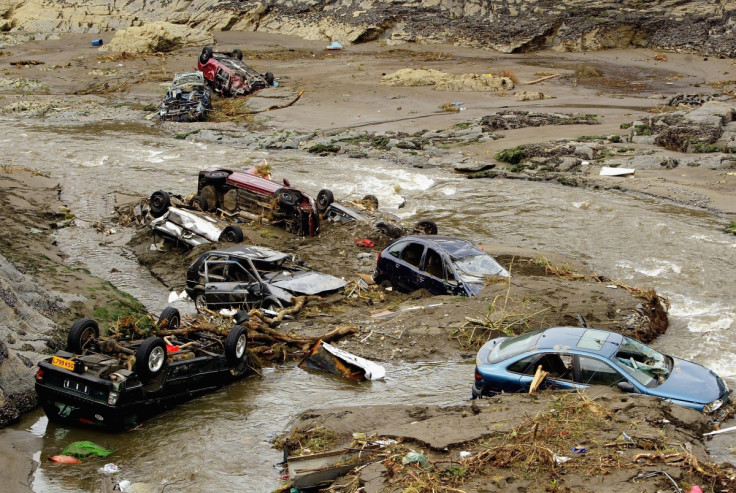Met Office: Climate Change to Cause More Summer Flash Flooding in UK

Heavy summer rainfall and flash flooding will become more common in the UK as a result of climate change by the end of the century, a study has warned.
According to the research by the Met Office and Newcastle University, climate change will result in summers becoming drier overall, but will also see as much as five times more flash flooding due to short periods of extreme rainfall.
The study, published in Nature and Climate Change journal, used the floodings of Boscastle, north Cornwall in 2004 as an example of flooding due to short, intense rainfall.
Newcastle was also hit by flash flooding in 2012 after the equivalent of one month's rain fell in a matter of hours.
Previous studies into climate change were unable to record the effect of hour-by-hour intense rainfall in summer months, as seen before the Boscastle and Newcastle floods.
For this study, researchers used a climate model with a higher resolution than had ever been used before - 1.5km grid boxes instead of the usual 12km - to examine future rainfall change.
Dr Lizzie Kendon, lead author of the research at the Met Office, said: "Until now, climate models haven't been able to simulate how extreme hourly rainfall might change in future. The very high resolution model used in this study allows us to examine these changes for the first time.
"It shows heavier summer downpours in the future, with almost five times more events exceeding 28mm in one hour in the future than in the current climate - changes we might expect theoretically as the world warms.
The report states that the results are only based on one model so are not definitive. Also, because of the precise nature of the study, they were only able to examine the southern half of the UK, even then it took the Met Office supercomputer nine months to run the simulations.
The first simulation represented the climate as it was between 1996 and 2009 and the second one predicting what it would be like by 2100 as a result of global warming.
Prof Hayley Fowler, from Newcastle University's School of Civil Engineering and Geosciences, and lead on the CONVEX project, said: "We need to understand about possible changes to summer and winter rainfall so we can make informed decisions about how to manage these very different flooding risks in the future.
"The changes we have found are consistent with increases we would expect in extreme rainfall with increasing temperatures and will mean more flash floods.
"The next steps are to see if these changes are consistent with observed trends in summer rainfall extremes and changes projected by climate models in other parts of the world."
© Copyright IBTimes 2025. All rights reserved.




















